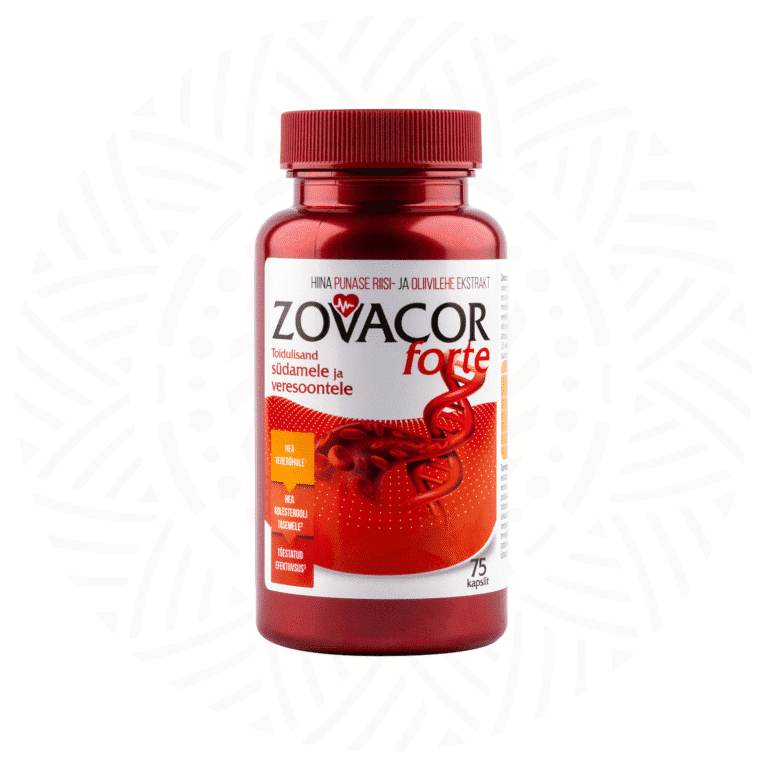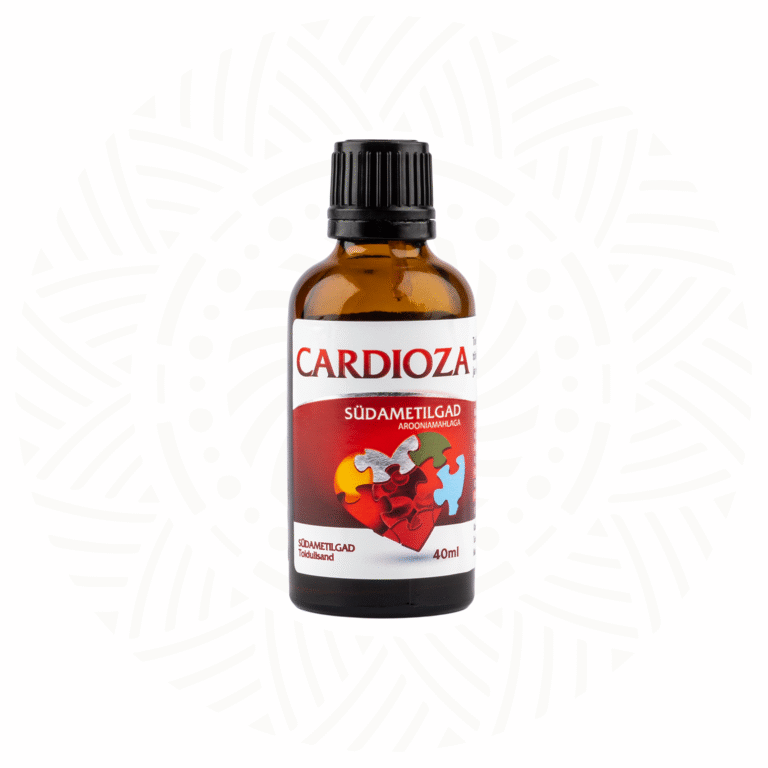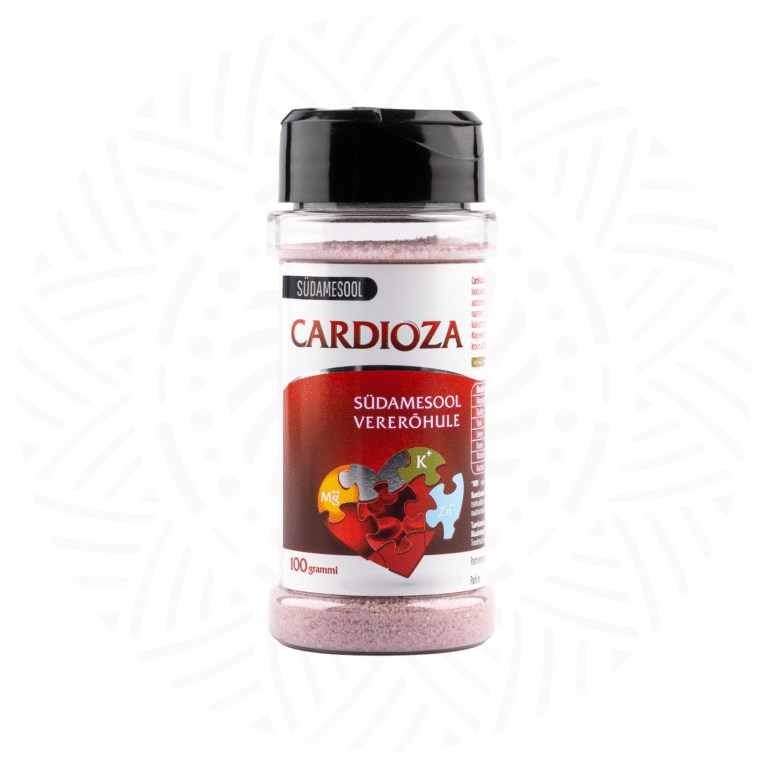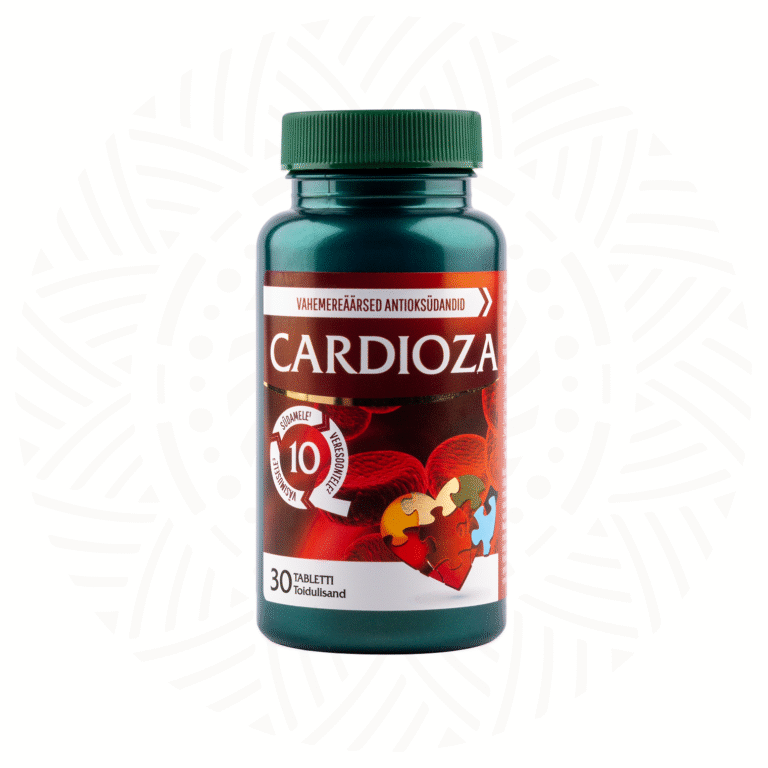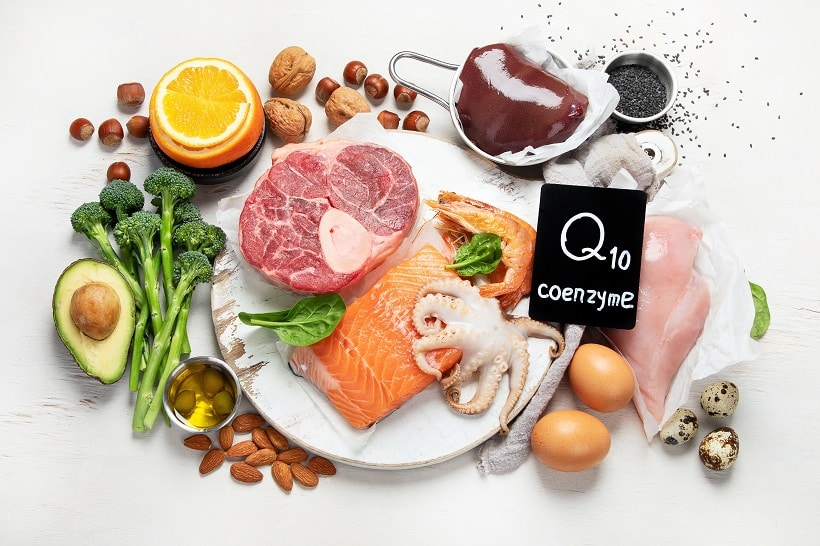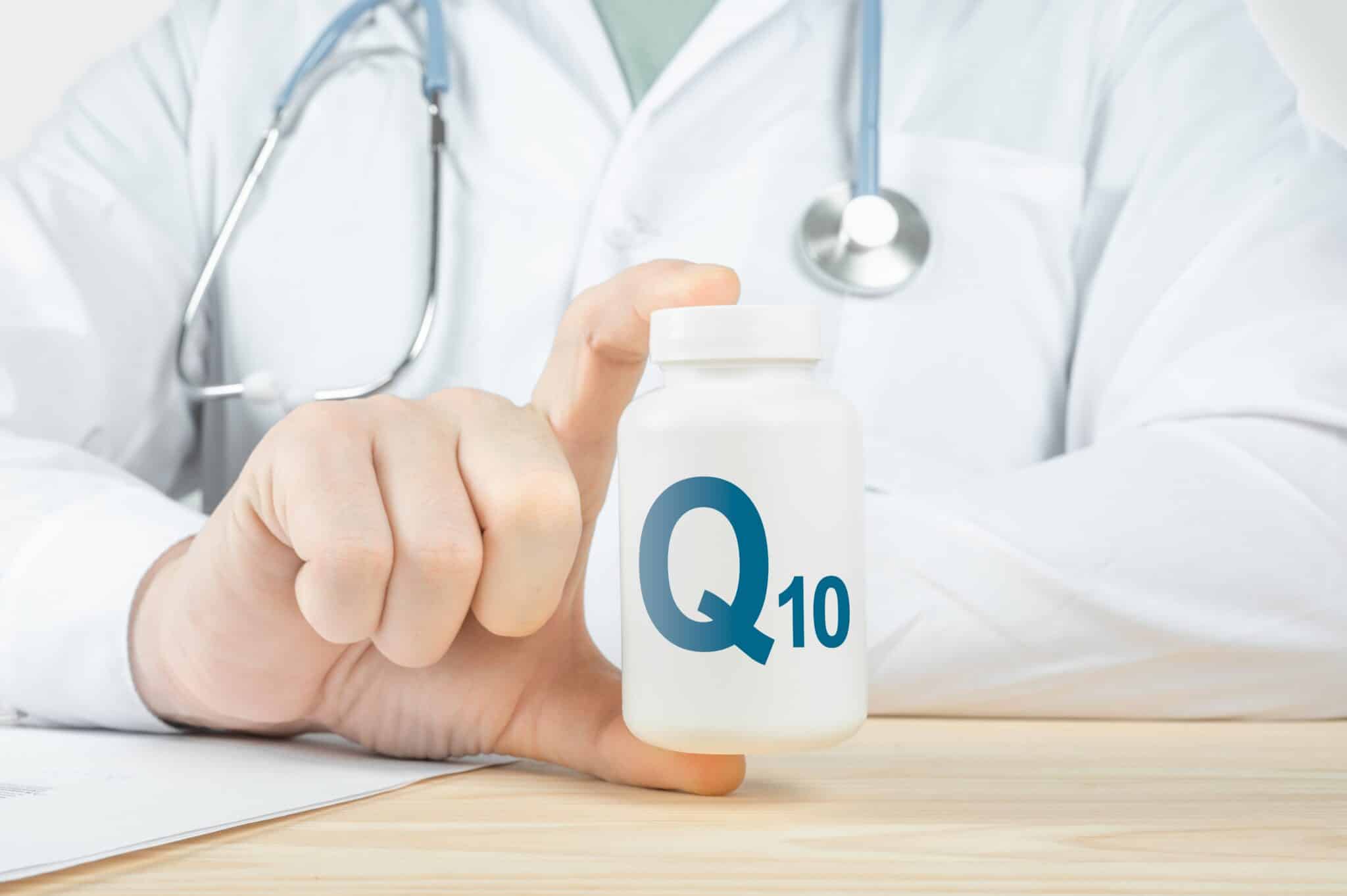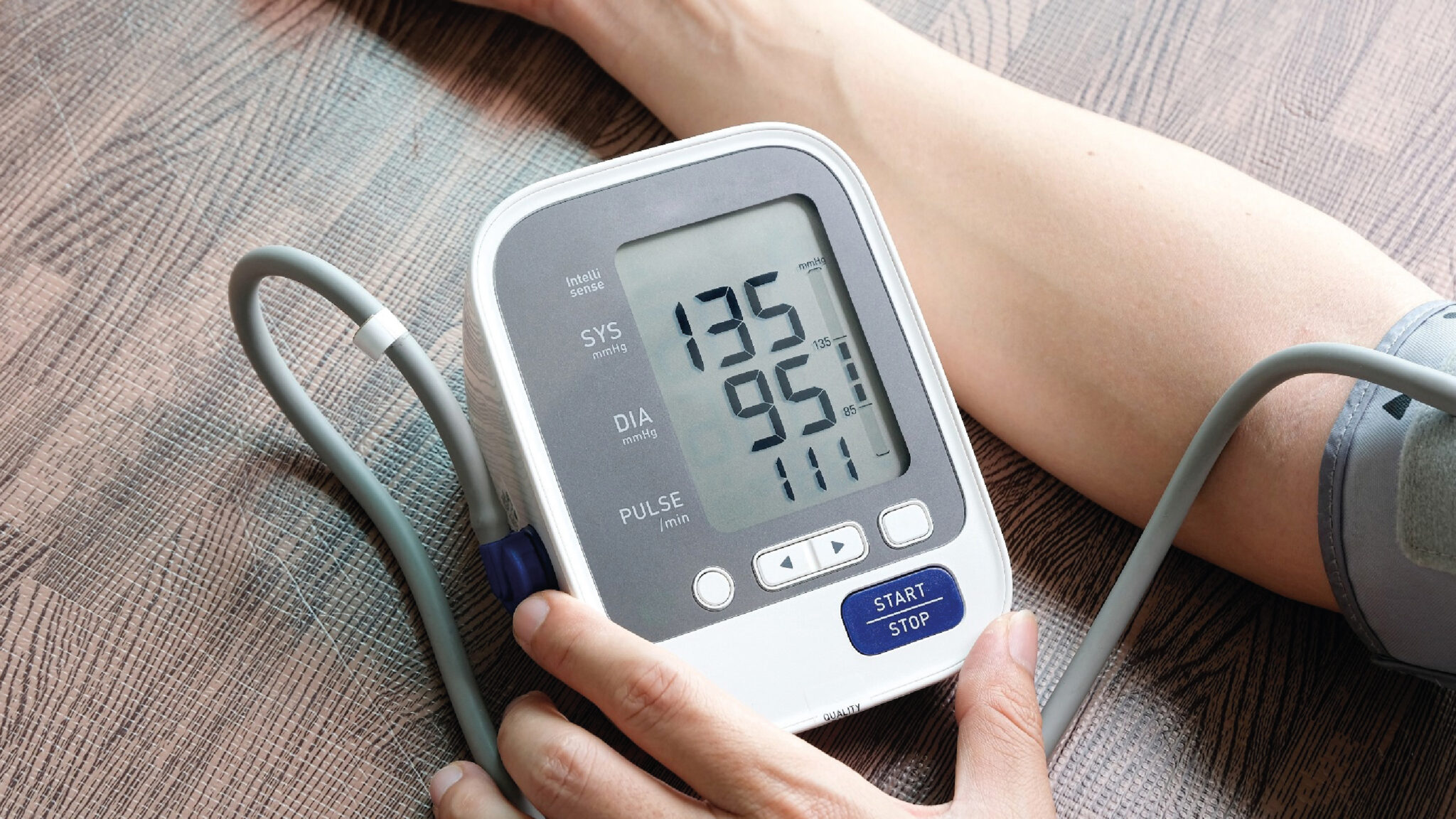High blood pressure remains a major issue in Estonia, affecting nearly every second adult. Elevated blood pressure negatively impacts the heart and vascular system and is a leading cause of death and disability. Timely preventive measures can help avoid lifelong medication and increase the number of healthy years lived.
Below, we summarize the topic and explore how to lower blood pressure without medication if a doctor has not yet prescribed treatment, and whether lifestyle changes can help prevent the condition.
Why is high blood pressure dangerous?
High blood pressure is the most common heart disease, directly or indirectly causing 60% of deaths. Cardiologists refer to high blood pressure as the “silent killer” because symptoms often appear only when severe complications develop. High blood pressure is the leading risk factor for all heart diseases, strokes, and kidney diseases.
| Blood Pressure Category | Systolic Blood Pressure (mmHg) | Diastolic Blood Pressure (mmHg) |
| Ideal | < 120 | < 80 |
| Optimal | 120-129 | 80-84 |
| Normal | 130-139 | 85-89 |
| High Normal | 140-159 | 90-99 |
| Stage 1 Hypertension | 160-179 | 100-109 |
| Stage 2 Hypertension | 180 or more | 110 or more |
| Life-Threatening Blood Pressure | 180 or more | 120 or more |
It is important to know that hypertension is a lifelong condition that cannot be cured. The only proven way to reduce the risk of heart disease is to keep blood pressure under control through doctor-prescribed medication and lifestyle changes. Therefore, it is essential to strictly follow the treatment and recommendations provided by your doctor!
Symptoms of high blood pressure:
- Headache and pain in the back of the head
- Dizziness
- Heart palpitations
- Chest pain
- Shortness of breath
- Balance disorders
- Vision problems
- Excessive sweating
These symptoms may appear when blood pressure is particularly high or rises rapidly.
What are the risk factors for high blood pressure?
In 95% of cases, the causes of high blood pressure are unknown, but several factors increase the risk of developing the condition:
- Excess weight, especially increased waist circumference
- Stress and mental strain
- Heredity
- Age
- Poor dietary habits
- Excessive salt consumption
- Sedentary lifestyle
- Excessive alcohol consumption
- Smoking
Weight loss reduces blood pressure
High blood pressure and excess weight often go hand in hand. Being overweight can also cause sleep apnea, which further increases blood pressure. This makes excess weight one of the leading risk factors for cardiovascular diseases. Waist circumference is also important—health risks increase when it exceeds 102 cm in men and 88 cm in women.
Weight loss is one of the most effective ways to control and lower blood pressure. Each kilogram lost can reduce blood pressure by approximately 1 mmHg. A 10-kilogram weight loss can lower blood pressure by up to 10 mmHg.
It is crucial to reduce excess weight before blood pressure starts rising!
Regular exercise lowers blood pressure
High blood pressure is closely linked to a lack of physical activity. Exercise helps reduce both body weight and blood pressure. Therefore, regular physical activity is a medication-free way to lower blood pressure.
Just 30 minutes of brisk walking per day is enough to help reduce blood pressure. Continuous moderate-intensity activities such as walking, jogging, swimming, skiing, and cycling are ideal. Adding strength training can further enhance the positive effects on blood pressure. However, the benefits remain only if exercise is done consistently.
Start exercising today to prevent high blood pressure!
Antioxidants lower blood pressure
A healthy diet is essential for both disease prevention and treatment. The Mediterranean diet is considered the gold standard for lifelong health, as it helps normalize blood pressure and reduces the risk of heart disease by up to 31%.
The benefits of the Mediterranean diet lie in its rich antioxidant content. Antioxidants help restore the elasticity of blood vessels, reduce inflammation, and thus normalize blood pressure.
The Mediterranean diet consists of fresh fruits and vegetables, berries, seafood, olives, and olive oil. Cardiologists recommend consuming an adequate amount of antioxidants daily—200 grams of fruit and 200 grams of vegetables. For vascular health, it is also essential to consume Omega-3 fatty acids regularly.
Effective antioxidants that can be taken as supplements include vitamin C, vitamin E, zinc, oleuropein, and red wine extract.
A healthy diet is the best medicine for the heart!
Reducing salt intake lowers blood pressure
Excessive consumption of table salt raises blood pressure because sodium, the main component of salt, retains water in the body. When you consume too much salt, your body holds onto more fluid. This fluid accumulates in the blood vessels, causing them to narrow. As a result, blood pressure increases because the heart has to work harder to pump blood through constricted vessels.
Hypertension is more common in societies where salt intake exceeds 2.3 g per day. Nearly 90% of people in Estonia consume too much salt. According to recent studies, men consume an average of 12.2 grams and women 8.1 grams of salt per day.
There are several simple ways to limit salt intake in everyday life. Instead of salt, season foods with herbs (dill, parsley, basil) or spices (paprika, chili).
Potassium-rich foods help regulate blood pressure. Potassium is a mineral that counteracts the effects of sodium and helps maintain normal blood pressure. Foods rich in potassium include potatoes, tomatoes, bananas, red beans, peas, and melons.
Reducing salt intake is an important step in lowering the risk of high blood pressure. A healthy alternative is to use spices or special heart-friendly salts that contain potassium.
Here are some tips for reducing salt intake:
- Read food labels to check salt content.
- Whenever possible, prepare your own meals.
- Reduce the consumption of processed and pre-packaged foods.
- Use spices and special potassium-enriched salts instead of regular salt.
Be the captain of your own health and control your salt intake!
Relieving stress lowers blood pressure
Stress is one of the main risk factors for heart disease. When stressed, the body releases adrenaline and cortisol, which trigger the “fight or flight” response and make the heart beat faster. As a result, blood vessels constrict, and blood pressure rises.
Chronic stress also negatively affects sleep and increases weight, both of which are leading causes of high blood pressure. Effective stress-relieving supplements include B vitamins, vitamin D, vitamin E, magnesium, ashwagandha, rhodiola rosea, lemon balm, and melatonin.
Here are some tips to reduce stress:
- Regular physical activity – helps eliminate stress hormones and improves mood.
- A healthy diet – supports good mental health and stable energy levels.
- Adequate sleep – is essential for the body and mind to recover.
- Strong social relationships – provide support and positive emotions.
Choose heart health, keep stress at bay, and take the first step toward a healthier life today!
